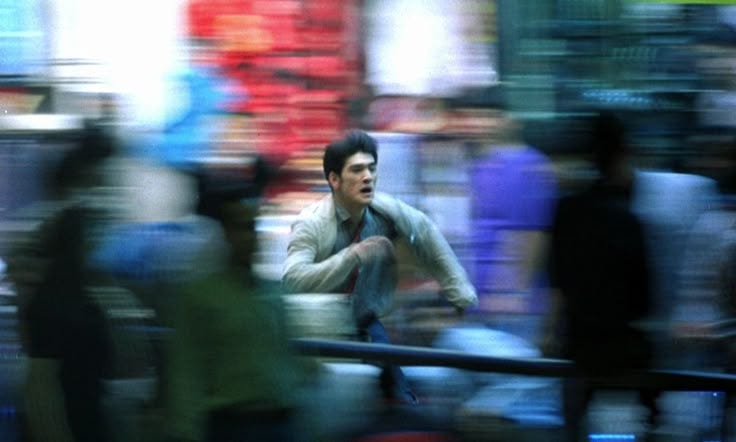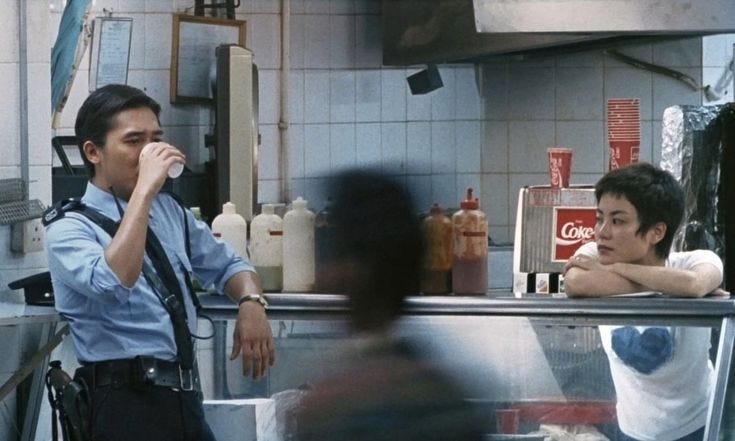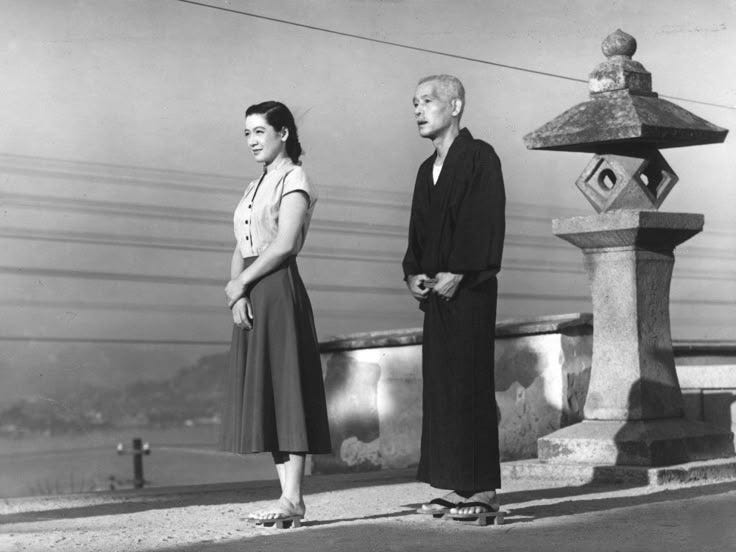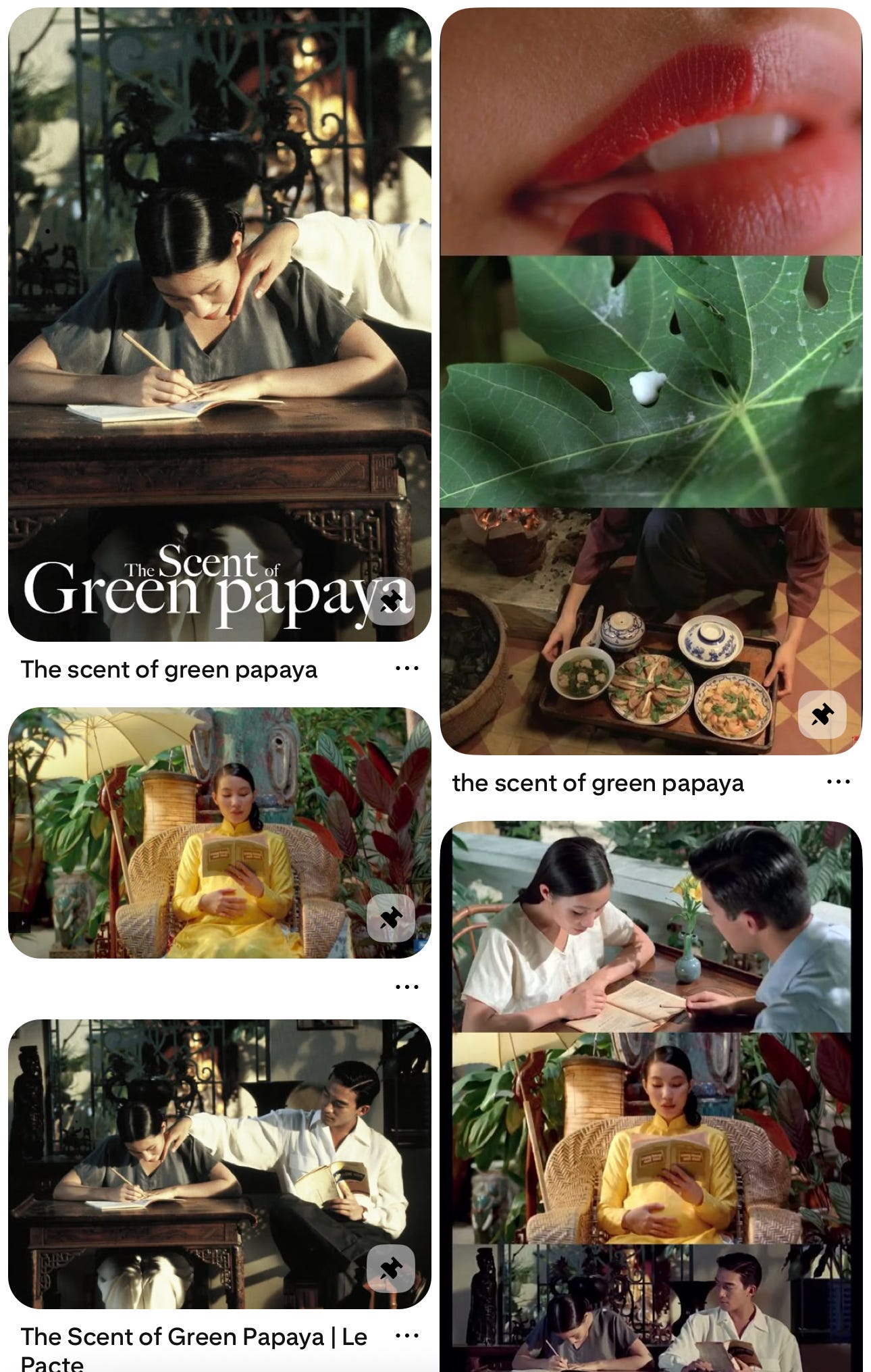Listen to the article (and additional commentary) here! Still trying this out it took so long to upload lmfao but I hope it humanizes the writing a bit more????????????
In London, there is a local "indie” cinema (I put “indie” in quotations because virtually anyone who’s slightly cool and young know about it alr) called the Prince Charles cinema, which also happens to be my favorite.
I was having a conversation with someone about seeing movies in cinemas, and I told them that Prince Charles is my favorite because their selection of movies is divine. One of the long-running movies of the cinema is In The Mood for Love and David Lynch’s Blue Velvet, which I love. They told me that Prince Charles is too expensive, and if I’m looking for alternative movie showings, I should try some other places, like BFI for example.
I’ve always known that Prince Charles (PCC) was expensive, because it is the poster child of alternative cinemas in London. Every weekend, if you walk through Chinatown, you would see a loooong line of film bros with tote bags and mullets, smoking and queueing to go inside PCC. No shade for the film bros btw, please keep local tote bag businesses alive, but you know what I mean. PCC is kinda an indie cliché, like tabis and listening to The Cure.
But I will never stop going to PCC! Because I am cliché personified, but also more importantly, PCC is emotionally so significant to me. I grew up watching a lot of Asian (especially Chinese) movies because my dad was a retired hippie, but I stopped for a while during middle and highschool because I was doing the classic teenage shit like watching LA lifestyle YouTubers and joining the BLACKPINK fandom. I got reintroduced to retro Asian movies when I started college in London, and the event that marked this was me going to see Chungking Express at PCC.
It was not my first time seeing the film, but there is something about sitting with a bunch of people in a dark basement with an actually good sound system, hearing Faye Wong in full volume, then walking out directly to London Chinatown with its red lanterns at late night, listening to California Dreaming.
And it’s been UP EVER SINCE THEN LMAO
If you’re in my boat of (re)discovering Asian cinema, here’s a watch guide + my personal, maybe a bit too passionate rationale on why these movies are brilliant.
Chungking Express (重庆森林) - Wong Kar-wai
It feels wrong not to start the list with the movie that changed my life, my taste, my perspective, and quite frankly the reason I am writing at all. I know it’s basic and most people have seen it but…. I still need to talk about it.
The movie is about 2 Hong Kong policemen, melancholic and in love. In the first half, we follow Cop 223 as he processed a breakup with his ex-girlfriend May by roaming around the city and being an absolute menace. Along the way, he crosses paths with a mysterious woman in a blonde wig, who we later found out was a drug dealer caught in a downward spiral. What follows is an unexpected, fleeting moment of intimacy between two people adrift.
The second half of the movie follows the love story between Cop 663 and a deli’s staff member Faye, played by the beautiful, talented, gorgeous, amazing, can-do-no-wrong, icon, actress, singer Faye Wong. He, too, recently broke up with his flight attendant ex-girlfriend, and was reluctant to recognize and accept Faye’s affection towards him.
This movie is so great not just because it’s a brilliant piece of art, but because it creates a world of its own: the stringy, humid heat of Hong Kong summers; the translucent glow of neon lights; the plastic chairs and roadside tables; the tiniest apartments pulsing with 80s and 90s Western pop. It’s a time capsule of 90s Hong Kong, tender and chaotic, suspended in light and longing.
It makes us question: when you fall in love, what exactly are you in love with? Is it the person themselves, or the version of yourself that exists within the relationship? Is it the validation of being chosen, being adored? Or are you, in some twisted ways, in love with the idea of this person’s ex-partner, and how you secretly desire to be her and “fill in her shoe?”
Chungking Express is not a love story; it is a story about love. Love in the times of rapid urbanization, of modern loneliness, of coping with life-shattering heartbreaks while still having to show up for your 9-5. It’s about love in the haze of youth, when you’re faced with impossible choices: between a person and your future, between staying and becoming someone new. It’s about how falling in love can sometimes mean never finding out who you could’ve been if you’d taken that flight and stepped into the unknown. (I hope that I have said enough without giving away too much spoilers.)
You will never hear California Dreamin’ the same.
Tokyo Story (東京物語) - Yasujirō Ozu
The first time I put on Tokyo Story, I kid you not—I fell asleep.
It was a hazy summer night in Hanoi when my dad and I decided to put on some old films to watch during dinner, and I recently was recommended Yasujirō Ozu by a superior at an internship whom I greatly admire. So we put that on, and 15 minutes in I was dozing off and my dad was already occupied with another form of media (YouTube shorts).
This could be considered embarrassing to admit, but it is important to acknowledge that some important movies are hard to watch. A lot of cult classics become cult classics because it requires additional effort to digest, whether it is the patience of sitting through half an hour of seemingly meaningless backstory, or experimental camera shots that would not make sense to the general public.
There is no shame in finding classic movies boring, and there is no shame in giving them second chances. Almost exactly a year after my sleeping incident, I decided to watch Tokyo Story once again. This time, the setting was different: it was during the day, I was inspired after coming back from Hong Kong and watching Ghibli on the plane (ikr how cringe), and I did some prior reading into Ozu’s filmmaking style to prep.
This time, it was completely different: I finally got it. The storyline about two grandparents traveling to the city to visit their children, the stationary camera shots and seemingly “boring” dialogues, the ending—all pieced together perfectly like a puzzle. If you really want to quantify how emotional Tokyo Story was for me: I was so touched that I had to call my own grandparents after.
The best movies are the ones that bring to you revelations and reflections about the relationships in your own life. They are also often not mainstream, as they do not provide the comfort of escapism or the constant stimulations of CGI and loud music. Tokyo Story forced me to rethink my relationships with previous generations in my own family, specifically how cultural gaps are created as Western ideals entered and influenced modern Asian cultures.
The movie is set in post-war Japan, when there was a constant battle between the old and the new. The traditional familial structure was breaking; the teens are actively engaging with Western ideals, while their parents struggle to preserve Confucian values. Naturally, it created a mismatch in rhythms, a generational gap visible in each and every home that people refused to address.
It is so funny that I got so emotional because the movie is hardly dramatic at all. Yasujiro Ozu’s signature style is tatami shots, low, static camera angles that mirror the perspective of someone seated on a tatami mat. The dialogues are almost exactly what you hear in real conversations, sometimes so straightforward and simple that they feel disarmingly ordinary. But what I truly appreciate is how the simplicity of the filmmaking allows the message to quietly shine through.
If I were to generalize Asian cultures, I would say that staying silent and brushing over problems (particularly psychological ones) is often the norm. Therefore, Ozu’s use of seemingly unrelated, simple dialogues and still camera shots makes you feel immersed in that cultural rhythm. You begin to experience the same sense of avoidance, almost becoming as non-confrontational as the characters themselves.
All of this to say: just call your grandparents, okay???
The Scent of Green Papaya (Mùi đu đủ xanh, L'Odeur de la papaye verte) - Trần Anh Hùng
For every Vietnamese kid who had somewhat of an interest in cinema, the director Trần Anh Hùng was once like their God.
He is a Vietnamese-born French director who was leading the wave of international films about Vietnam, who directed the adaptation of Norwegian Woods, who got nominated for an Oscar for his debut film (also the very film that I’m recommending) The Scent of Green Papaya. In short, he’s cool.
I remember being very little when the local television network announced that Vietnam got a nomination at the Oscars. At that time, our country did not have a strong presence in the international film industry, so almost everyone was raving about this one Vietnamese-born director that made it to the world’s most prestigious movie award, that won the Caméra d'Or at Cannes.
It was not until a long time later when I was a teenager and gained somewhat of an appreciation for art that I watched this movie. Maybe I am biased because I am Viet, but it was truly a gorgeous piece of visual art; it was like watching poetry to me. If you ever want to take a look of my moodboards throughout the years, a shot of Papaya is always in there somewhere.
And the plot… the whole story is just a gorgeous metaphor about growing up as a woman in Asian society. Our main character, just like the titular green papaya, started out green and naive, and throughout the course of the story, we watch her quietly mature, navigating life during a time when Vietnam was facing political uncertainty.
I was definitely too young to fully understand the movie on my first watch (I was 15 maybe?), so my initial thoughts were only that it was beautiful. Then I watched it again a year later and truly realized how profound the storyline was. It is about heartbreak, hatred, regret, grief, and how all of these are simply love in different clothing. As a Reddit comment beautifully puts it, the film depicts grief as “love with no place left to go.”
The Handmaiden (아가씨) - Park Chan-wook
Lesbians. Gore. Feminism. Colonialism. Psychological, kinky, disturbing, and refreshing. Do I really have to explain The Handmaiden further? No words can do this movie justice—just watch it and enjoy for yourself.
end,
What is everyone watching/reading/listening to this week?
I just finished Bonjour Tristesse, just in time for me to watch the movie. I am still trying to find words to describe my review of the book, but it was short and shocking. Definitely will watch the movie, half because I liked the book, half because I think the director Durga Chew-Bose is the coolest woman on earth.
I am GOING TO JAPAN for the first time this summer! Can you believe it? I still can’t believe I have never been to Japan. Everyone that knows me says I would love it, so I will update. Please leave recs. I will be buying all the fashion mags.











All these are such gems. I remember the first time I watched In The Mood For Love. I was on another stratosphere, and I just watched the Handmaiden yesterday. It was so good.
Tokyo Story definitely changed how I see family.